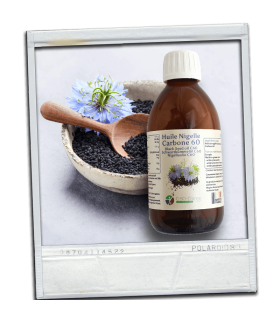Questions and Answers about the benefits of vitamin B complex
What is the Vitamin B complex?
The Vitamin B complex is a group of eight water-soluble vitamins that play important roles in the body. These vitamins are essential for maintaining good health and supporting a variety of body functions, including energy production, nerve function, and the metabolism of carbohydrates, fats, and proteins.
What are the eight vitamins in the Vitamin B complex?
The eight vitamins in the Vitamin B complex are:
- Vitamin B1 (thiamin)
- Vitamin B2 (riboflavin)
- Vitamin B3 (niacin)
- Vitamin B5 (pantothenic acid)
- Vitamin B6 (pyridoxine)
- Vitamin B7 (biotin)
- Vitamin B9 (folic acid)
- Vitamin B12 (cobalamin)
What are the benefits of taking the Vitamin B complex?
The Vitamin B complex has a number of potential health benefits, including:
- Supporting energy production
- Maintaining healthy skin, hair, and nails
- Supporting a healthy nervous system
- Maintaining healthy brain function
- Supporting the metabolism of carbohydrates, fats, and proteins
- Helping to produce red blood cells
What are the best food sources of the Vitamin B complex?
The Vitamin B complex can be found in a variety of foods, including:
- Meat, poultry, and fish (especially liver and kidney)
- Whole grains, such as oats and brown rice
- Legumes, such as beans and lentils
- Fruits and vegetables, such as bananas, avocado, and leafy greens
- Dairy products, such as milk and cheese
- Nuts and seeds, such as almonds and sunflower seeds
Can the Vitamin B complex be taken as a supplement?
Yes, the Vitamin B complex can be taken as a dietary supplement in the form of a pill, capsule, or liquid. It is also available as a fortified food, such as a fortified cereal or energy bar.
Is it possible to get too much of the Vitamin B complex?
It is generally safe to take the Vitamin B complex as a supplement, but it is possible to get too much of certain B vitamins if you take high doses of these vitamins over an extended period of time. Symptoms of B vitamin overdose may include skin rash, diarrhea, and abdominal pain. It is important to follow the recommended dosage on the supplement label and to talk to a healthcare provider before starting a new supplement regimen.
Can the Vitamin B complex have any negative side effects?
The Vitamin B complex is generally safe when taken in recommended amounts. However, taking high doses of certain B vitamins may cause side effects, such as skin rash, diarrhea, and abdominal pain. It is important to follow the recommended dosage on the supplement label and to talk to a healthcare provider before starting a new supplement regimen.
Is the Vitamin B complex necessary for everyone?
Most people get enough of the Vitamin B complex from their diet, but some people may need to take a supplement to ensure they are getting enough of these vitamins. This may include people who are vegetarian or vegan, pregnant or breastfeeding, or have certain medical conditions that affect the absorption of these vitamins.
How can I ensure I'm getting enough of the Vitamin B complex?
The best way to ensure you are getting enough of the Vitamin B complex is to eat a varied diet
How does the body use each of the B vitamins?
Each of the B vitamins has specific functions in the body. Here is a brief overview of the roles of each B vitamin:
- Vitamin B1 (thiamin) is essential for energy production and the proper functioning of the nervous system.
- Vitamin B2 (riboflavin) is important for the metabolism of carbohydrates, fats, and proteins, as well as for maintaining healthy skin, hair, and nails.
- Vitamin B3 (niacin) is necessary for energy production and the metabolism of carbohydrates, fats, and proteins. It also plays a role in maintaining healthy skin and the proper functioning of the nervous system.
- Vitamin B5 (pantothenic acid) is involved in the metabolism of carbohydrates, fats, and proteins, as well as the production of hormones and cholesterol.
- Vitamin B6 (pyridoxine) is essential for the metabolism of proteins and carbohydrates, and also plays a role in the production of red blood cells.
- Vitamin B7 (biotin) is important for the metabolism of carbohydrates, fats, and proteins, as well as the production of hormones and cholesterol.
- Vitamin B9 (folic acid) is necessary for the production of red blood cells and the proper functioning of the nervous system. It is also important for fetal development during pregnancy.
- Vitamin B12 (cobalamin) is essential for the production of red blood cells and the proper functioning of the nervous system. It also plays a role in the metabolism of carbohydrates, fats, and proteins.
Can the Vitamin B complex help with stress and anxiety?
Some studies have suggested that certain B vitamins, particularly B1 (thiamin) and B3 (niacin), may help to reduce stress and anxiety. B vitamins are involved in the production of neurotransmitters, which are chemicals that help to transmit signals in the brain. These neurotransmitters, such as serotonin and dopamine, are thought to play a role in mood regulation.
Can the Vitamin B complex help with memory and cognitive function?
Some research has suggested that certain B vitamins, particularly B1 (thiamin), B3 (niacin), and B12 (cobalamin), may have a positive impact on memory and cognitive function. B vitamins are involved in the production of neurotransmitters, which are chemicals that help to transmit signals in the brain. These neurotransmitters are thought to play a role in brain function and cognition.
Can the Vitamin B complex help with energy and fatigue?
Yes, the Vitamin B complex may help with energy and fatigue. Certain B vitamins, such as B1 (thiamin), B2 (riboflavin), and B3 (niacin), are involved in the production of energy in the body. They help to convert food into energy that the body can use. In addition, B vitamins are involved in the production of red blood cells, which help to transport oxygen throughout the body. This can help to reduce fatigue and increase energy levels.
Can the Vitamin B complex help with hair loss?
Some research has suggested that certain B vitamins, particularly B5 (pantothenic acid) and B7 (biotin), may help to promote healthy hair growth and prevent hair loss. B vitamins are involved in the metabolism of carbohydrates, fats, and proteins, which are essential for the production of healthy hair. In addition, B7 (biotin) is necessary for the production of keratin, a protein that helps to keep hair strong and healthy.
However, it is important to note that hair loss can be caused by a variety of factors, including genetics, hormonal imbalances, and certain medical conditions. Taking B vitamins as a supplement may help to support healthy hair growth, but it may not necessarily prevent or treat hair loss in all cases. It is always best to talk to a healthcare provider if you are concerned about hair loss.










